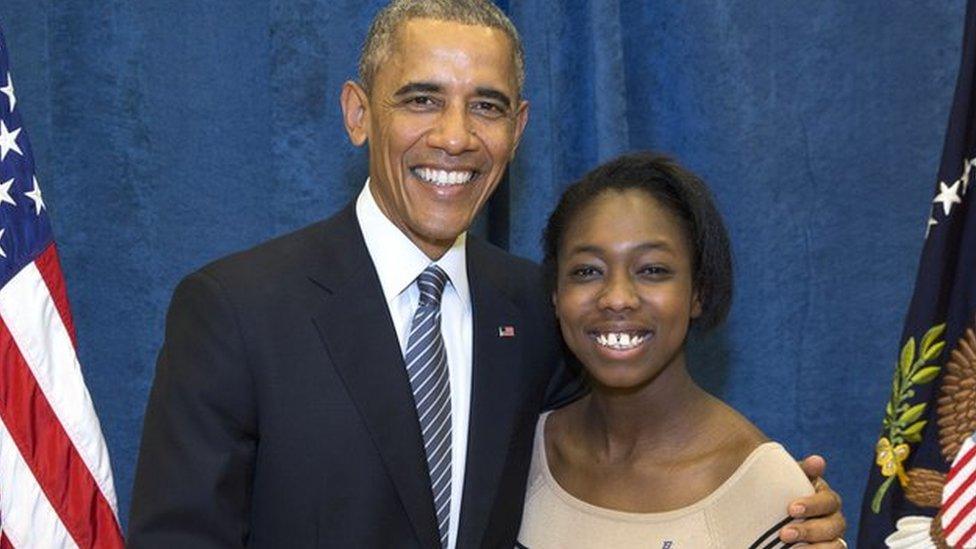'I broke away from a strict homeschooling community cult'
- Published
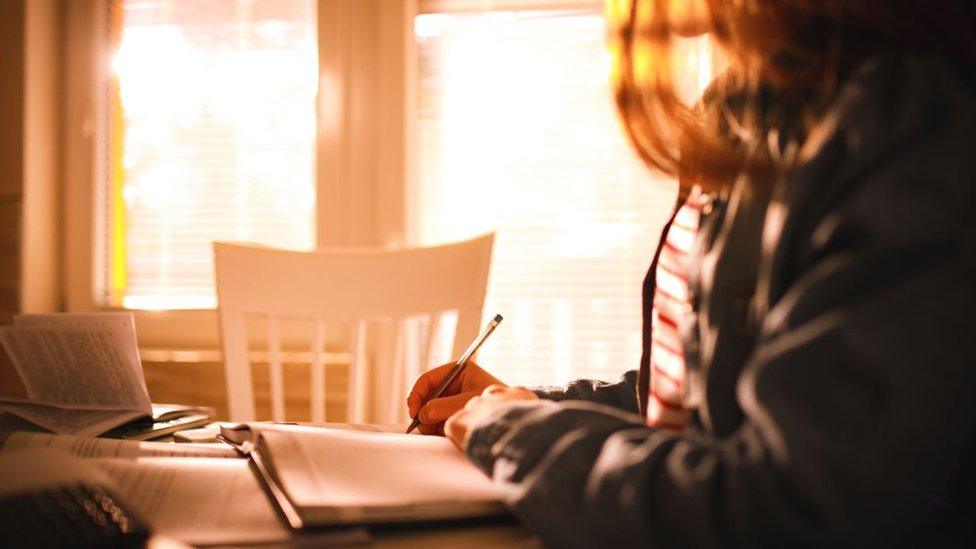
'Judy' studied hard and managed to go overseas to carry out missionary work
When you're very young, your parents or guardians are responsible for nurturing and teaching you as you grow up, but how do you know if you are getting a good upbringing?
The news that a teenager escaped from her home in California, where she and her 12 siblings were held in shackles by their parents, sent shockwaves across the world.
But what happens to children who are brought up under such restricted conditions?
Judy (not her real name) told the BBC about what life was like for her living in a "homeschool community" in Oregon, USA.
'His word was law'
"I was raised in a homeschool religious cult which encouraged parents to set up their own little schools and renew their marriage vows, just like the Turpin family. I recognise some of their behaviours.
"When my parents got together they were disenchanted by the overly free and 'hippy' style of living that was sweeping across the country. They wanted children to live a different life instead of one with no morals or rules.
"They had heard about Bill Gothard, founder of the Institute in Basic Life Principles, external (IBLP), who was a really big deal in Oregon. They attended his seminars and embraced the IBLP homeschooling curriculum wholeheartedly.
"He was an icon, kind of like a prophet. The seminars involved a week of intensive brainwashing. He was the authority. His word was the law.
"My parents started homeschooling in the late 1980s and for over 30 years our family became part of this closed community with similar values."
'Strict and abusive'
"There was a lot of heavy-handed smacking from our parents. To disobey them, was to disobey God. The system was especially awful for the little ones. At Bill Gothard's seminars he used to talk about 'breaking their will'.
"They were quite abusive, but we knew other families who had it worse than us. When I was little, we lived in a mobile home. It was really inadequate - there were four or five of us in a room.
"Under the IBLP system, adults were not allowed to get into debt or have a mortgage, so my parents built a house. While it was being constructed we lived in a garage. I lived in a proper house at 15 and shared a bedroom with one or two sisters. It seemed fine at the time but as I grew up, it was more and more difficult having no space to myself."
Judy believes there is a connection between the Turpin family and Bill Gothard and the IBLP:
"He's very big in Texas. I met the Duggar family (who have 19 children) at one of the seminars. The real emphasis is on families, big ones."
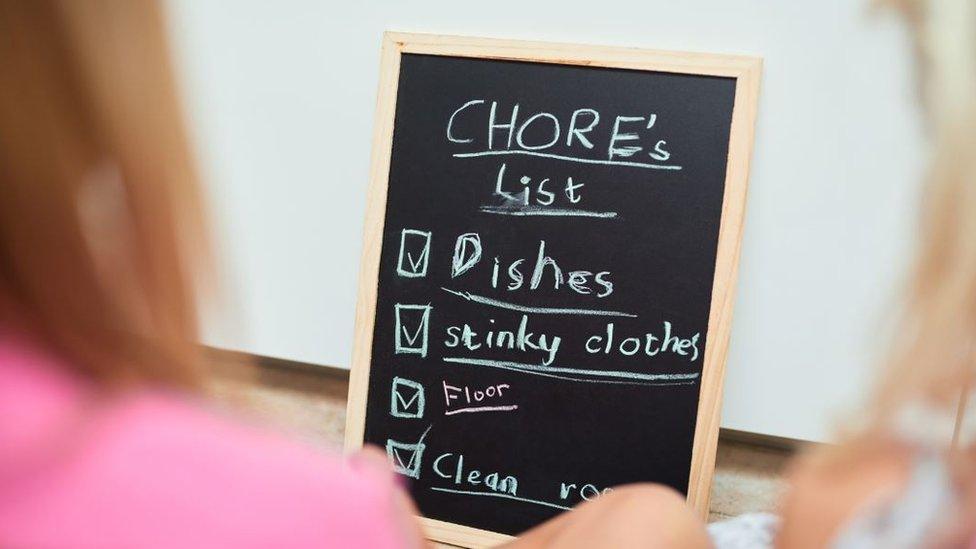
In Judy's homeschooling community, girls were expected to carry out domestic chores
'You don't know what's normal'
"The world outside our community was presented to us as an evil, bad place that we were protected from.
"We were required to memorise a lot of scriptures - chapters and chapters of the bible, to the point at which we could quote them off by heart.
"I got on with my siblings. You had to - that's one of the commands. I might not have in normal circumstances. There was definitely a pecking order and a lot of bullying in the family.
"Abuse in homeschool communities is often normalised or well-hidden and all too common.
"You don't know what's normal. There was no TV and no communication with anyone outside our circle. We watched movies once a week at our grandparents' house.
"We would have been seen and heard as there was a park and playgrounds near our house where we could play. But we didn't integrate outside the family."
'I was a second mum'
"We were fed well. All of us had braces on our teeth and we were healthy.
"I am the second eldest of nine siblings and when my mother gave birth I had childcare responsibilities.
"Girls weren't encouraged to pursue careers. They were expected to stay at home and help out with the family, and I was kept busy with lots of domestic work.
"I did pretty much everything. I was like a second mum, especially while my mum suffered from depression after she miscarried child number 10.
"My dad was away a lot on business during the spring and summer. But when he was around, he was most definitely in charge."
You might also like:
The outside world
"Under Bill Gothard's teachings, I was sent to Taiwan aged 21 to teach English for six months.
"After a year back in Oregon, I went to mainland China. In a sense, I didn't really leave my family. I was still very much connected by phone calls and emails.
"Living in China, I got to know 'normal' Americans who hadn't been homeschooled. That was a bit of a culture shock.
"I met a British man there and soon realised how different my life was back in Oregon. We decided to get married in the US."
Cutting ties
"I didn't realise how much of a hold the cult had on me. My husband and I stayed in the US for a while, but soon realised it was better for us to remove ourselves from the community completely. My family didn't really like my husband although he was really good with them.
"My husband encouraged me to stay in touch with my family. It took a lot for him to see that they were never going to change. But I have not seen my family since I left. I'm now in my 30s.
"A lot of people ask if it's hard to cut yourself off from your family. It was an upheaval but I was lucky to have the support of my husband who helped me to find the strength to leave my community and country. I couldn't have done it alone.
"It's taken me a long time to realise the extent of the abuse I encountered. Now that I have three lovely children of my own and am part of a real community and church, I realise my upbringing was not normal."
The Washington Post reported that Bill Gothard resigned from the IBLP ministry in 2014, external amid allegations of sexual abuse, which he denied, and in 2016 there were further details of a lawsuit filed by 10 women, external.
Interview by Sherie Ryder, UGC and Social News team
- Published20 January 2018
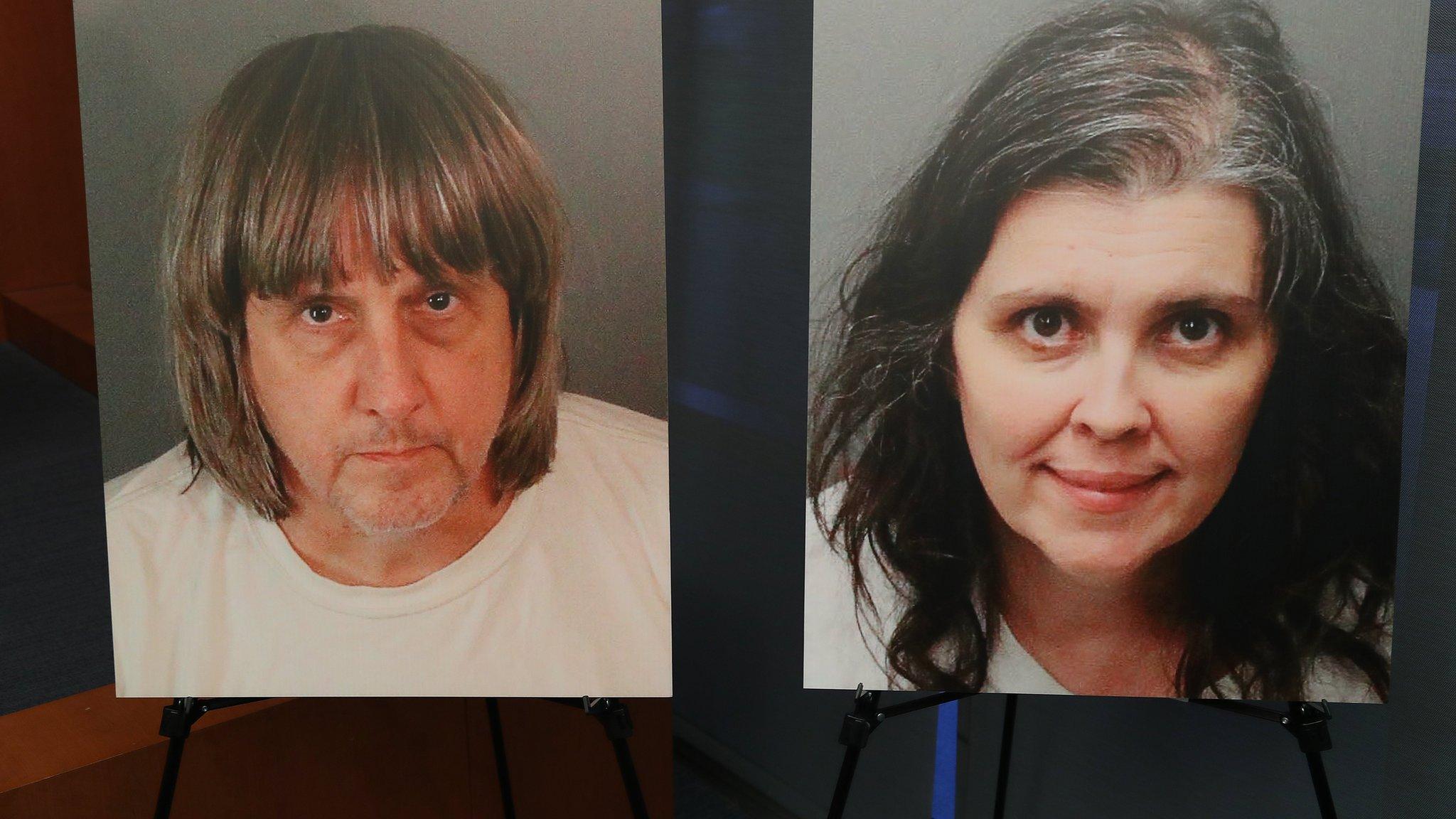
- Published17 January 2018
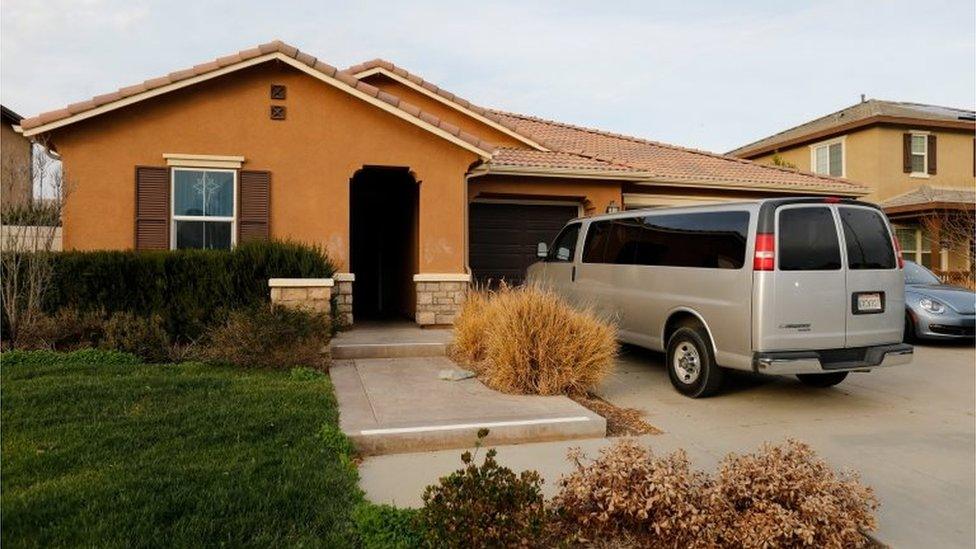
- Published18 November 2017
